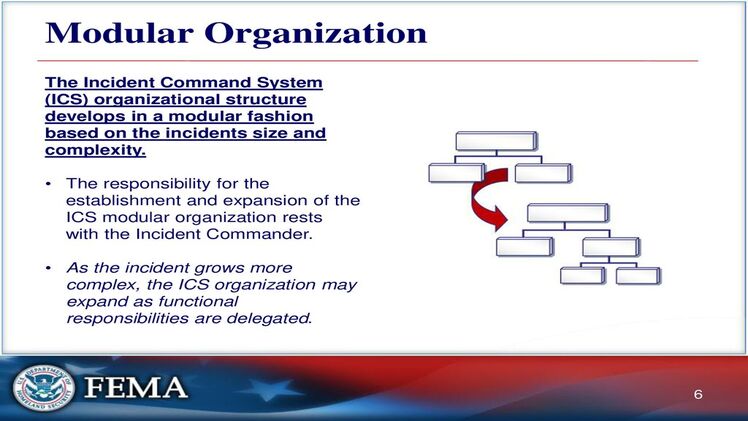Introduction
The Incident Command System (ICS) is a critical framework used globally for managing emergencies, disasters, and large-scale incidents. One of the key strengths of ICS lies in its adaptability and modularity, allowing it to scale to meet the needs of various situations. The responsibility for expanding the ICS modular organization is a collective effort involving various stakeholders, including government agencies, emergency response teams, and the community at large. In this article, we will explore why the expansion of ICS is crucial and delve into the roles and responsibilities of the entities involved.
The Significance of ICS Expansion
The adaptability of ICS is a pivotal aspect of its effectiveness in emergency response. It allows for seamless integration of additional resources, personnel, and agencies, ensuring a coordinated and efficient approach to managing incidents of any scale. As emergencies evolve, so must the ICS framework to effectively address emerging challenges.
- Government Agencies: The Foundation of Expansion
- Federal Level: At the federal level, agencies such as FEMA (Federal Emergency Management Agency) play a pivotal role in the expansion of ICS. They provide guidance, resources, and training to ensure that ICS principles are implemented consistently across the nation.
- State and Local Levels: State and local government agencies are responsible for customizing ICS to meet regional needs. They establish protocols, conduct training, and facilitate exercises to ensure that all stakeholders, including first responders and public officials, are proficient in ICS practices.
Emergency Response Teams: Implementers of ICS Expansion
- Fire Departments: Fire departments are often at the forefront of emergency response efforts. They play a critical role in implementing ICS, providing incident commanders and leaders who are trained in ICS principles.
- Law Enforcement Agencies: Police departments are integral to ICS expansion, particularly in incidents where law enforcement coordination is paramount. They contribute to command and coordination functions and work in tandem with other response agencies.
- Emergency Medical Services (EMS): EMS teams are essential for providing medical care during emergencies. They follow ICS protocols for medical operations, ensuring that the healthcare component of incident management is well-coordinated.
- Search and Rescue Teams: Search and rescue teams often operate in complex, high-risk environments. They rely on ICS principles to establish command structures and coordinate operations, ensuring the safety of responders and victims alike.
Non-Governmental Organizations (NGOs) and Volunteer Groups:
NGOs and volunteer organizations, such as the Red Cross and community-based groups, are vital resources in ICS expansion. They contribute specialized skills, resources, and manpower, supplementing the efforts of government agencies and formal emergency response teams.
- Community Engagement: A Crucial Element
- Community Preparedness: Engaging the community in preparedness efforts is an essential responsibility. This involves educating residents on the importance of ICS, conducting drills, and encouraging them to have their own emergency plans in place.
- Public Information and Communication: Effective communication is paramount in emergencies. Community members can play a role in disseminating accurate information, helping to prevent misinformation and ensure that residents are well-informed about the situation and response efforts.
- Training and Exercises: Sustaining Proficiency
Ongoing training and exercises are fundamental in maintaining proficiency in ICS principles. All stakeholders, including government agencies, emergency response teams, and community members, must engage in regular training and drills to ensure that they are familiar with ICS procedures and can implement them effectively during an incident.
Conclusion
The expansion of the ICS modular organization is a collective responsibility that involves various stakeholders, from government agencies and emergency response teams to non-governmental organizations and the community at large. By working together and ensuring that everyone is proficient in ICS principles, we can enhance our collective ability to respond to emergencies and disasters effectively. This collaborative effort is essential in building resilient and prepared communities, capable of facing and overcoming any challenge that may arise.

